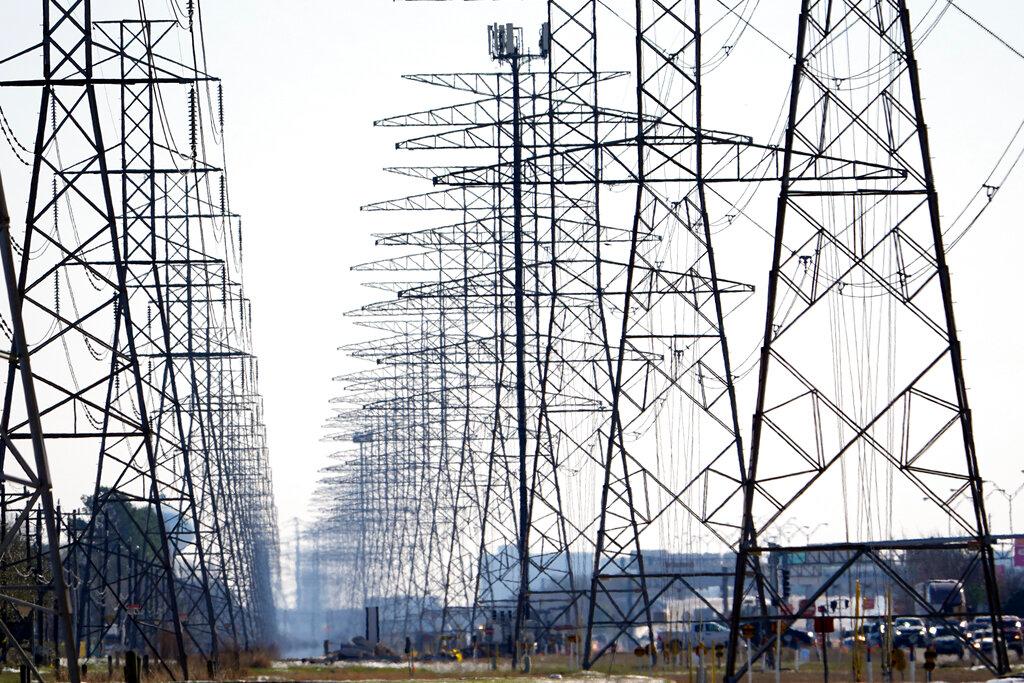
As the temperature dropped Sunday evening, the Platte River Power Authority decided it needed help from individual energy users.
The cold snap has restricted electricity generation just as people cranked thermostats and flipped on space heaters. To keep the lights on, the wholesale power provider asked its customers in Longmont, Estes Park, Loveland and Fort Collins to cut back on electricity and natural gas.
Overall demand dropped 10 megawatts within about an hour, roughly 2 percent of overall energy use.
“We had to ask our customers to moderate their consumption,” said spokesperson Steve Roalstad. “They did, and that got us through.”
The moment was a minor hiccup compared to the vast outages in other parts of the country. Nearly 3 million households in Texas were still without electricity Wednesday morning due to power problems triggered by the unprecedented cold weather. Officials fear the disaster could end up killing hundreds of people.
Republican politicians were quick to blame frozen wind turbines for the problems. Texas power managers have since debunked the claims, saying a loss of natural gas generation was the main cause behind the power failures.
Meanwhile, there were no reports of widespread outages in Colorado.
Mark Dyson, a researcher with the Rocky Mountain Institute who’s studied grid resilience for the clean energy think tank, said a big reason is likely how Coloradoans heat their homes.
Federal data show almost 70 percent of buildings rely on natural gas, which means cold snaps are less taxing for the electric grid. The state’s natural gas infrastructure is also fortified against frigid temperatures.
The situation is different in Texas, where 60 percent of homes rely on electric heaters. Many are inefficient resistance heaters, which rely on technology similar to the glowing wires inside a toaster oven.
“That means when extreme cold comes — especially unprecedented cold temperatures that cover the entire state — they see massive and historic levels of electricity demand just to keep people's houses warm,” Dyson said.
But Dyson said that doesn’t mean anyone should fear electric heaters. In fact, as Colorado seeks to reduce its contribution to climate change, his organization has thrown its weight behind the movement to “electrify everything” so people can take advantage of new wind and solar generation.
Gov. Jared Polis has also identified the shift to electric heat as critical to Colorado’s efforts to reduce greenhouse gas emissions. According to state estimates, buildings produce the equivalent of 25 million tons of CO2 a year, making the sector the state’s third-largest source of greenhouse gases after transportation and electricity generation.
The administration’s climate change “roadmap” calls on the legislature to pass laws to force utilities to offer incentives for electric furnaces and water heaters.
But Dyson said that electrifying buildings wouldn’t leave Colorado’s grid vulnerable to cold weather. Rather than electric resistance heaters, he said many buildings could instead opt for more efficient heat pumps, a technology that works more like a refrigerator operating in reverse than a toaster oven.
“If everybody in Texas has heat pumps instead of up resistance heating, the state as a whole would have had more gas to go around and would have been able to run more power plants,” Dyson said.
Cold competition
While the recent freeze may not have caused power outages in Colorado, it did show how the cold can increase competition for natural gas. The Platte River Power Authority provides one clear example: As energy demand peaked, the power provider needed natural gas to keep up despite a large portfolio of renewables.
Steve Roalstad, the utility spokesperson, said the issues with the system started when the power provider lost electricity from a large wind farm in southern Wyoming. NextEra Energy, which operates the facility, reported the cold threatened components and coated the blades with ice. Snow also blocked sunlight to a new 22-megawatt solar power system.
The utility usually offsets intermittent renewable power and demand spikes with natural gas turbines. Xcel Energy, Colorado’s largest utility, provides the fuel to those generators, but Roalstad said the company reduced the supply Sunday to preserve gas for residential and commercial heating.
Michelle Aguayo, a spokesperson for Xcel Energy, confirmed the utility made the demand.
“While we did not ask our residential customers to conserve energy, we did call on our interruptible customers, customers who have an agreement to curtail use during extreme weather conditions, for help,” Aguayo said.
Roalstad said Xcel lifted the limits Monday, which allowed it to access fuel to meet extra demand. He said no one lost power due to generation struggles with electricity. At its weekly meeting Wednesday, Colorado’s Public Utilities Commission agreed to open an investigation into how power providers responded to the extreme weather event.
It’s not uncommon for severe cold snaps to force hard decisions about natural gas. A 2020 report from the Rocky Mountain Institute on grid resilience, co-authored by Dyson, noted “heating is commonly prioritized over power generation, diverting natural gas to buildings from electric generators.” Examples include polar vortexes in the United States in 2014 and 2019.
The report warns the problems could grow worse if homes and power plants increase their reliance on natural gas.
Dyson said local generation options, like solar panels, could help make communities more resilient without expanding natural gas infrastructure. Systems to direct power based on need could also help protect against future threats to the electrical grid.
Meanwhile, Lynn Granger, the director of the American Petroleum Institute Colorado, said the recent cold snap shows Colorado still needs natural gas to maintain a reliable grid.
“We are confident that Colorado’s utilities recognize the value of natural gas as a key component of their diverse energy mix, particularly in recent days, and we are heartened that our state has avoided significant disruptions,” Granger said.








